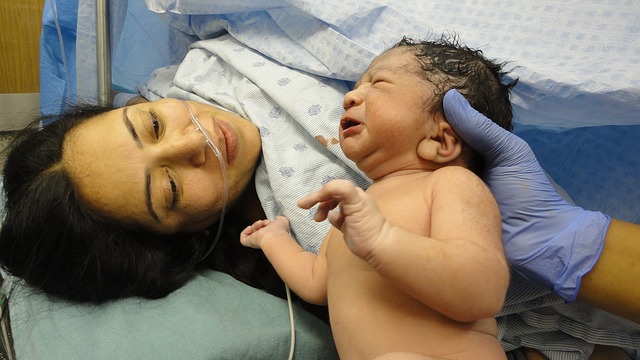
Postpartum depression is a serious condition. In its mildest forms, mothers experience intense mood swings that can interfere with their ability to take care of their baby and themselves. In its most severe forms, suicide or harm to the baby may result. Postpartum depression differs from the “baby blues” in its intensity and duration. It is not a defect or lack of love between mother and child. It’s a medical illness.
The Mayo Clinic identifies the following symptoms:
- Depressed mood or severe mood swings
- Excessive crying
- Difficulty bonding with your baby
- Withdrawing from family and friends
- Loss of appetite or eating much more than usual
- Inability to sleep (insomnia) or sleeping too much
- Overwhelming fatigue or loss of energy
- Reduced interest and pleasure in activities you used to enjoy
- Intense irritability and anger
- Fear that you’re not a good mother
- Feelings of worthlessness, shame, guilt or inadequacy
- Diminished ability to think clearly, concentrate or make decisions
- Severe anxiety and panic attacks
- Thoughts of harming yourself or your baby
- Recurrent thoughts of death or suicide((http://www.mayoclinic.org/diseases-conditions/postpartum-depression/basics/symptoms/con-20029130))
The onset of these symptoms may occur shortly after the baby is born but can also emerge six months later.
Occasionally the media reports of a severe, shocking case of postpartum depression where a mother causes harm to her child. These reports come with judgment and a lack of understanding that postpartum depression is an illness, not a fault of character. We need to educate ourselves on the causes and symptoms so that we can help mothers.
What causes postpartum depression?
According to the Mayo Clinic, there is not a single cause for postpartum depression. Hormonal changes after labor contribute, as well as emotional stress. ((http://www.mayoclinic.org/diseases-conditions/postpartum-depression/basics/causes/con-20029130)) Considering 10-15% women are affected by this disorder, finding underlying causes is important.
Kelly Brogan, MD has more answers and suggestions:
You can imagine my excitement when I read Homocysteine and serotonin: Association with Postpartum Depression one weekend. Here, researchers state what I’ve come to believe is the most promising gauge of risk to baby and mother: elevated inflammatory markers. They state, “One of the biological factors for PPD may be higher levels of homocysteine,” and go on to discuss the results of their study, which assessed Edinburgh-confirmed postpartum depression and found elevated homocysteine at both 1-2 days postpartum and 6 weeks after delivery.
The babies of these mothers also had lower APGAR scores. Unsurprisingly to me, serotonin played a less predictable role (because depression is not a serotonin deficiency!). ..
Want to minimize your risks? Ask your doctor to check (at least) the following labs:
- MTHFR
- Rbc folate
- Homocysteine
- hsCRP
- B12, methylmalonic acid
- HgA1C((http://kellybroganmd.com/causes-postpartum-depression/))

Pitocin during labor may increase postpartum depression
There could be another contributing hormonal factor that increases the risk of postpartum depression: synthetic pitocin. Pitocin is synthetic oxytocin. Oxytocin is often called the “hug hormone”. We increase production when we feel loved.((https://www.psychologytoday.com/basics/oxytocin))
Natural oxytocin plays an important role in labor. Mother for Life explains:
Oxytocin is the hormone responsible for uterine contractions during labor. When your labor starts, oxytocin is present in small amounts that will gradually increase throughout the duration of your labor. Oxytocin levels are usually at their peak during delivery, which promotes a sense of euphoria in the mother and helps her develop a stronger bond with her baby.
Another positive aspect of the increased presence of oxytocin at birth is that it contributes to the ejection reflex of the placenta and helps the uterus return to its original shape faster, which reduces the risk of excessive bleeding and complications.((http://www.motherforlife.com/pregnancy-and-maternity/giving-birth/progress/8367-oxytocin-s-role.thtml))
Pitocin is used to induce labor, to speed up labor, or to help the uterus contract after labor to prevent hemorrhaging. It causes uterine contractions.((http://www.npr.org/sections/babyproject/2011/08/03/138938885/breaking-down-the-drugs-a-labor-and-delivery-q-a)) It is commonly used in hospital births. In fact, 40% of mothers in Quebec were given pitocin in labor. ((http://www.motherforlife.com/pregnancy-and-maternity/giving-birth/progress/8367-oxytocin-s-role.thtml))
According to Psychology News, pitocin may put new mothers at a greater risk of developing anxiety and/or postpartum depression. According to the study:
The sample included 9,684 deliveries with peripartum synthetic oxytocin exposure (defined as within two weeks of delivery date) and 37,048 deliveries without peripartum synthetic oxytocin exposure. Depressive or anxiety disorders, defined as record of diagnosis and/or receipt of antidepressant or anxiolytic medication prescription, were divided into three timeframes: pre-pregnancy (diagnosis/prescriptions more than one year before delivery), pregnancy (diagnosis/prescription during pregnancy or 40 weeks ahead of delivery date), and postpartum (diagnosis/prescription one year following delivery).
The researchers found that exposure to peripartum oxytocin increased the risk of depression or anxiety in the first postpartum year by about 32% in women with no history of pre-pregnancy depression or anxiety. In women with a history of pre-pregnancy depressive or anxiety disorder, exposure to the peripartum oxytocin increased the risk of depression or anxiety by 36%. These risks were still present even if the analysis factored in multiple births from one woman, for example by only looking at index deliveries (each woman’s first birth) or analyzing one random birth from women with multiple deliveries.((http://linkis.com/alert.psychnews.org/bGM8t))
The authors note that oxytocin is used to treat postpartum depression, a practice that should be reevaluated in light of this research.
There is also evidence that pitocin has adverse effects on newborns as well.((http://www.acog.org/About-ACOG/News-Room/News-Releases/2013/Study-Finds-Adverse-Effects-of-Pitocin-in-Newborns))
Treatment options for Postpartum Depression
The standard treatment for postpartum depression is medication and psychotherapy.((http://www.mayoclinic.org/diseases-conditions/postpartum-depression/basics/treatment/con-20029130))
Kelly Brogan, MD offers “lifestyle medicine” as a natural alternative:
Exercise: Burst exercise is my primary recommendation. It is the most bang for your buck in terms of cardiovascular benefit and specifically enhancing mitochondrial health because it puts a special kind of stress on the body when you move to your max for 30 seconds, then recover for 90. I recommend 8 intervals 1-3 times per week.
Meditation: The effects of stimulating the relaxation nervous system, even through listening to a 20-minute guided meditation, can be far-reaching. Enhanced genomic expression of anti-inflammotry genes and suppression of inflammatory ones were demonstrated in this study.
Diet: I recommend a diet that controls for glycemic fluctuations through elimination of refines carbs and grains, and through high levels of natural fats to push the body to relearn how to use fats for fuel. This is the brain’s preferred source.
Strategic supplementation: Natural anti-inflammatories like polyunsaturated fats (evening primrose oil and fish oil), vitamin D, N-acetylcysteine, magnesium, curcumin (the active component of turmeric), and probiotics can help promote a synergy of beneficial effects from the above interventions.((http://kellybroganmd.com/causes-postpartum-depression/))
Postpartum depression is very serious and should be treated with the care of a skilled provider not internet advice. Please seek out help that includes a multi-faceted approach for treatment.
OmarMedinaFilms / Pixabay
Leave a Reply